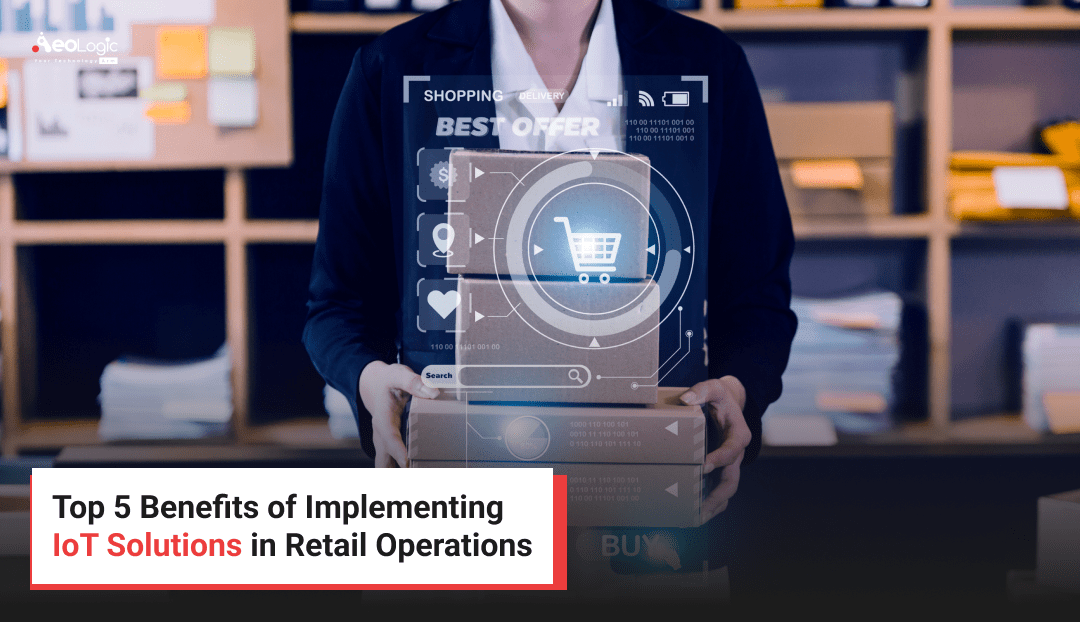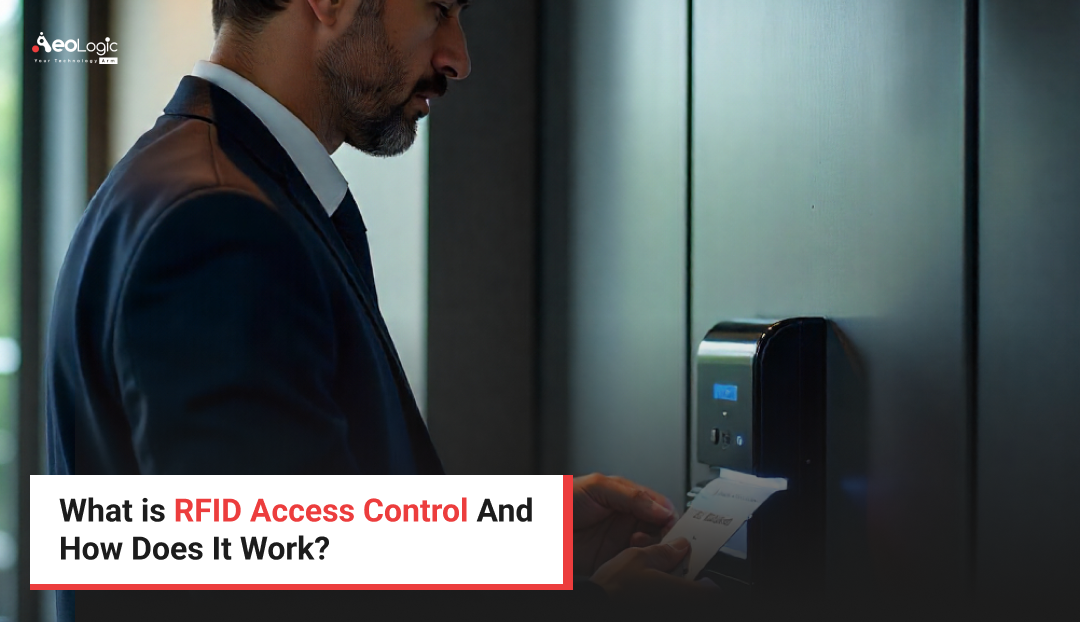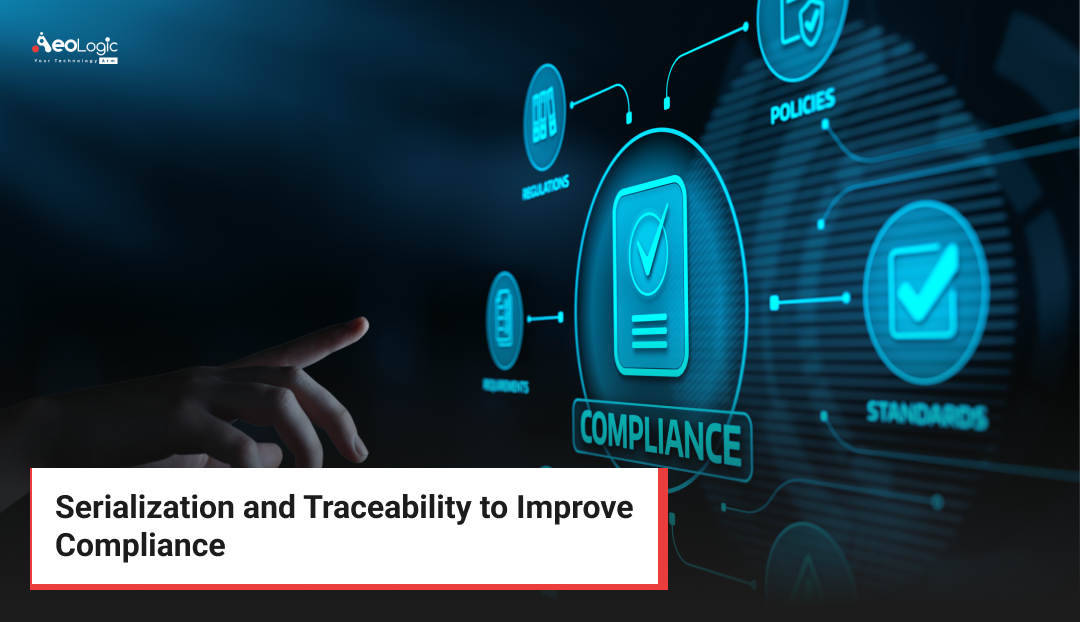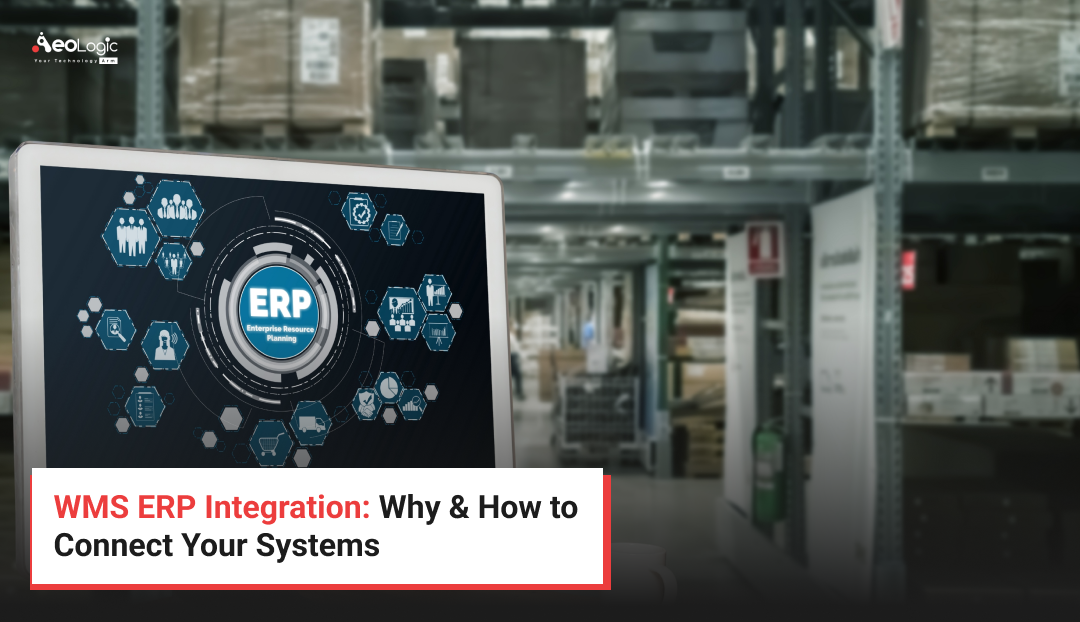The retail industry is one of the fastest-growing industries that needs to evolve its operations management to provide a more enhanced shopping experience to customers, However, the traditional management of these operations takes many individual solutions that need to invest more and also do not fully guarantee that they can transform the retail businesses. But digital transformation has changed the way for various retail businesses, as among all technologies, IoT-powered solutions are the great ones to increase the efficiency of retail operations in various incredible ways.
Integrating IoT in retail operations offers numerous benefits, such as better data-driven decision-making, increased supply chain efficiency, and improved consumer experiences. Retailers can boost sales, cut expenses, and enhance customer happiness by using IoT devices to maintain inventory, track consumer behavior, and optimize shop operations. This allows retail businesses to make a stand in the digital transforming environment, as without cutting-edge technology solutions, retail or any other business could lose its identity.
IoT Retail Market Statistics
- The IoT in retail market size has grown rapidly in recent years. It will grow from $39.52 billion in 2024 to $46.77 billion in 2025 at a compound annual growth rate (CAGR) of 18.3%.
- According to Oracle research, 66% of companies use IoT technologies to facilitate the customer experience. And 88% of respondents agreed that IoT data will provide them more insight about customers than any other form of data.
- According to McKinsey, IoT devices and applications will accelerate work process efficiency, resulting in savings from $150 billion to $350 billion globally in 2025.
- A report shows that 77% of retailers have admitted that the IoT solutions have positively impacted the customer experience.
The Role of IoT Solutions in Retail Operations?
The IoT solutions in retail operations refer to the services that involve IoT-powered devices such as sensors, software, and connected devices to enhance the various operations inside a retail business. It could be key applications of IoT solutions in retail businesses, such as automation, data collection for better insights, better knowing of customers, inventory management, supply chain monitoring, and error detection.
IoT solutions are so incredible that they can seamlessly and smoothly integrate with other technologies to enhance the capabilities of businesses. It is highly recommended that retail businesses implement IoT solutions for better growth and better positioning to grab the market competition.
IoT also makes supply chain management better in the retail business, which cuts costs and improves logistics. Overall, IoT is making stores run more smoothly and encounters with customers more personal and interesting.
Explore more: How IoT Software Solutions Are Transforming Enterprises
Top 5 Benefits of Implementing IoT Solutions In Retail Operations
The integration of IoT in the retail industry is changing the way firms operate and connect with customers. The sector is seeing substantial development as a result of advanced technologies and innovative methods. Here are the key IoT retail benefits influencing the industry’s future.
Better Supply Chain Management
Supply chain management involves inspection, monitoring, and detection of various processes accurately which simply are not possible with the right solutions. The IoT solutions for the retail operations can integrate GPS to the various processes from beginning to end which helps businesses to monitor every operation closely.
This reduces the chances of quality degradation and overall enhances or improves the supply chain management. 74% of business leaders saw revenue increase after applying smart devices in logistics.
Smarter In-Store Inventory Tracking
The inventory management should be done in the right way to provide a better experience to the customers. However, various retail businesses failed to manage inventory due to unreasonably high expenditures, employee inefficiencies, and mishandled inventory tracking. The IoT retail solutions generally provide the tracking facility of inventory that provides the information about the stock,k that prevents out-of-stock and overstock situations.
Personalization for Customers
Customers always seek special treatment whenever they go shopping in retail stores. But as a retail business, you cannot provide a personalized experience to the customers until you do not know your customers. The IoT retail solutions allow the data about the customer’s engagement to be analyzed with the help of machine learning to provide personalized experiences and recommendations to the customers.
Also read: The Power of IoT in Retail to Optimize Your Business
Reduces Shrinkage and Fraud
The shrinkage and fraud are the major factors that reduce revenue generation and also degrade the reputation of the retail business. The IoT retail solutions can enhance the tracing of products with more accuracy in comparison to traditional methods of human monitoring. There are various solutions powered by IoT like smart shelves, cameras, beacons, etc that can send alerts if any abnormal activities are detected to prevent potential theft.
Also Read: The Impact of RFID and IoT on Retail Loss Prevention and Security
Optimization of Store Staff
Customers always face issues whenever they need help in a retail store, as there may be no salesperson found. Sometimes customers also have discomfort when a salesperson stays around them. The IoT powers solutions and machine learning algorithms can be used to detect the facial expression of customers to understand what type of problem the customers are facing. This immediately informs the salesperson near the customer via wearable devices to reach out to the customers to solve their problems or confusion.
| Benefit | Example IoT Technologies Used | Estimated ROI (%) |
|---|---|---|
| Better Supply Chain Management | GPS Trackers, RFID Tags, Real-Time Sensors | 15-20% Cost Reduction |
| Smarter In-Store Inventory Tracking | Smart Shelves, IoT Sensors, Barcode Scanners | 10-25% Increase in Sales |
| Personalization for Customers | Beacons, AI Analytics, Customer Tracking Devices | 20-30% Increase in Customer Retention |
| Reduces Shrinkage and Fraud | Smart Cameras, RFID, Motion Sensors | 25-35% Shrinkage Reduction |
| Optimization of Store Staff | Wearables, Facial Recognition, Smart Alerts | 10-15% Boost in Customer Satisfaction |
Also Read: How IoT in Retail is Reshaping the Retail Industry
Cost to Implement IoT Solutions in Retail Operations
Implementing IoT in retail entails various costs that go beyond the initial setup. These include investments in hardware and software and ongoing operational expenses. Here is the cost breakdown mentioned below for different factors.
- For the retail industry, the average costs for IoT software development range between $25,000 and $250,000.
- The more intricate the solution, the higher the cost. For example, proof-of-concept (PoC) projects typically cost between $5,000 and $20,000, while minimum viable projects (MVP) can range from $20,000 to $80,000.
- Large-scale deployments with numerous IoT devices and data management needs can significantly increase costs, potentially reaching $200,000 to $1 million or more.
This is just the estimated cost for your retail business, it can vary according to the factors you consider. So, before investing, simply analyze every factor to get the best estimated cost for your retail operations.
Also Read:Smart IoT Solutions for Ecommerce and Retail Industry
Top IoT Technologies Used in Retail Operations
The retail sector is using IoT technologies to improve the consumer experience and streamline operations. From smart shelves to automated checkouts, these technologies are changing the way merchants connect with customers and handle inventory.
Smart Shelves
Smart shelves use embedded sensors to monitor inventory levels in real time and tell workers when things need to be restocked, ensuring that products are always available to customers.
Beacons
These little gadgets broadcast individualized offers to clients’ smartphones based on their in-store location, allowing shops to engage customers with targeted discounts.
RFID Tags
Radio Frequency Identification tags improve inventory tracking by offering real-time updates and decreasing the need for manual stock checks.
Automated checkout
IoT-enabled checkout systems offer a cashier-free experience, allowing customers to finish purchases swiftly and without excessive wait times.
Smart Carts
These IoT-enabled carts help shoppers navigate the store, keep track of their purchases, and enable seamless checkout for a more convenient shopping experience.
Predictive Maintenance for Equipment
IoT sensors monitor equipment conditions, allowing for predictive maintenance to avoid failures of critical machinery such as freezers and HVAC systems.
Customer Analytics Sensors
These sensors track client movement and engagement, providing significant knowledge for optimizing store layout and product placement.
Together, these IoT technologies help shops improve efficiency, increase customer satisfaction, and drive sales growth.
| IoT Technology | Key Benefits | Typical Use Cases | Implementation Challenges |
|---|---|---|---|
| Smart Shelves | Real-time inventory visibility, reduced stockouts | Inventory management, automatic restocking alerts | Initial sensor cost, integration complexity |
| Beacons | Personalized customer engagement, increased sales | Location-based marketing, in-store navigation | Privacy concerns, battery life |
| RFID Tags | Accurate inventory tracking, loss prevention | Asset tracking, anti-theft | Tag cost, reader infrastructure |
| Automated Checkout | Faster transactions, reduced labor costs | Self-checkout kiosks, cashier-less stores | Technical glitches, customer adaptation |
| Smart Carts | Enhanced shopping experience, seamless payments | Guided shopping, cart tracking | Cost of carts, data privacy |
| Predictive Maintenance | Reduced downtime, lower repair costs | Monitoring refrigeration units, HVAC systems | Sensor calibration, data analysis |
Also Read: 10 Technologies Leading Digital Transformation In Retail
Final Take
With several new trends and technologies poised to transform the retail sector, the Internet of Things solutions appear to have a bright future in the retail industry. Virtual reality (VR) and augmented reality (AR) are anticipated to be important tools and trends for improving consumer experiences. Drones and robots with Internet of Things capabilities could automate a range of retail tasks, from delivery to inventory management, etc, and make everything easier and more convenient than ever before.
Overall, retail businesses and retailers who understand and embrace IoT technologies will be better positioned to meet evolving customer demands, improve operational efficiency, and stay competitive in the market.
Aeologic Technologies is here to help product developers test, emplace, and operate global retail IoT results and help retail chains gain access to the best possible cellular IoT connectivity for their device. Get in touch with our experts if you would like to find out further about how we can help your retail IoT solutions.

I’m Deepika Pandey, an SEO strategist and content writer with 6+ years of experience. I create SEO-friendly content that drives traffic and engages readers. I combine data insights with creativity to help businesses grow their online presence effectively.







